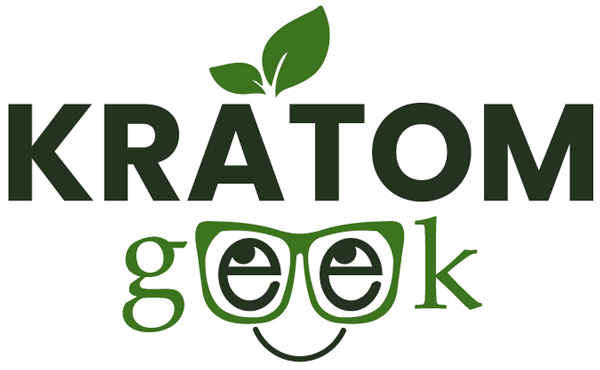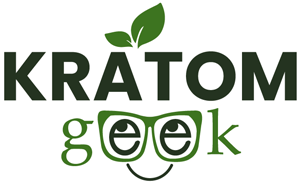Until the federal government passes a Kratom Consumer Protection Act, Americans will never know what tomorrow holds for the kratom industry. The Drug Enforcement Agency (DEA) and the Food and Drug Administration (FDA) already want to restrict the plant from citizens by placing it on the scheduled list of drugs and banning the substance. And even though kratom has been sold as a natural supplement in the United States for years, the FDA still claims it’s an unregulated drug being sold on the market illegally and warns about its potential dangers. But the federal agency refuses to acknowledge the scientific reports that suggest the FDA is pushing a false narrative about the leaf and its benefits.
There are millions of people in the United States alone that can attest to the therapeutic and life-changing advantages the plant has provided them since they first started taking kratom. And they’ve been outspoken to our government about it. Their ability to take kratom whenever it’s needed helps those people to live a more normal and fruitful life.
Losing access to kratom products would create complications for many people in our nation. And that’s something certain government agencies have refused to consider as they continue the fight against kratom, trying to make it illegal. But even if a bureaucratic pitfall puts kratom on the chopping block, there still might be a way for the plant’s presence to remain within our culture. Only, it might not be the way we hoped or are accustomed to.
Biotech Companies Seeking Answers
There are quite a few biotech companies out there that are looking into particular molecules that the mainstream pharmaceutical companies won’t touch. And one of those firms is called ATAI Life Sciences. For the most part, the company seems to be focusing on mental healthcare, utilizing 5HT2A agonists and drugs that act on the glutamatergic and GABAergic systems. Yet, ATAI Life Sciences has recently started delving into molecules that act as atypical opioids, too (we’ll go over that a bit later).
One of the molecules the company is looking into is psilocybin, a psychedelic alkaloid found in magic mushrooms. Recently the compound has gotten a lot of attention from the medical industry because experiments suggest it can assist patients dealing with mental issues like Post Traumatic Stress Syndrome (PTSD). Another molecule that might help to treat mental health is arketamine, one-half of the enantiomers that make up a molecule called ketamine—the other half, Esketamine, was recently used to create a nasal-spray antidepressant by another pharmaceutical company.
But ATAI Life Sciences is also looking into a couple of alkaloids that show promise with treating opioid addiction as well. One of those molecules is ibogaine. That psychoactive compound is found in a West-African evergreen bush called iboga. The other molecule that shows promise is an alkaloid we all know too well. The reason for that is because it’s one of the primary alkaloids found inside kratom. And the biotech company became aware of the compound through the research produced by Kures.
Kratom Helped Create Kures
In 2016, Andrew Kruegel had been slaving away at his research on kratom at Columbia University for the past six years. But that year, the DEA announced it would be performing an emergency scheduling of kratom, placing Kruegel in a precarious situation. He believed he had 30 days before his lab would need to destroy all of the research. So Dr. Kruegle began focusing his efforts on getting the word out about his research and the kratom plant to legislators and reporters. With the outspoken support from kratom advocates, the DEA rescinded their proposal to schedule the plant, giving Kruegel the chance to continue with his work. Afterward, he decided to found a small biotech firm that was named Kures. And with his new company, he made sure to keep his focus on the molecules found inside kratom that showed massive potential.
As the success of Dr. Kruegel’s research started to get more attention in the field, other companies began to see the potential of the kratom compounds. And that meant the acquisition of Kures by one of the bigger players would shortly follow, and that’s what happened next for the firm. Earlier this month, on July 09, 2020, ATAI Life Sciences announced through a press release that it had acquired a majority stake in that pharmaceutical company, bringing Kures under its umbrella. And that placed the kratom plant to the forefront of the pharmaceutical industry’s attention, allowing kratom a prominent position for discussion in the scientific community for once.
A Pharmaceutical Derived From Kratom
The pharmaceutical creation belonging to Kures that’s destined to shake up the industry will be KUR-101: a drug derived from mitragynine—one of the primary alkaloids found inside the kratom plant. And if the company was looking to create a new pain medication to be placed on the market, then that compound was a great choice to use. The molecule acts as an atypical opioid, allowing the patient the benefit of the pain-relieving properties of traditional opioids without the over-burdensome risk of quickly becoming addicted to the compound.
Now, I’m not saying that mitragynine—or KUR-101—doesn’t carry an addictive nature. We know that it does. The science behind the plant has shown that to be true. But in comparison to opiates, which kratom is constantly contrasted with, any tolerance or habit-forming property attached to the substance is limited. And that’s easily manageable. For the most part, it’s no more addictive than caffeine. Numerous scientific studies have corroborated that data with several experiments.
Kures also has a second compound under development, known as KUR-002, which is looking to treat depression. But it’s the company’s kratom-derived compound that everyone should be watching closely.
Once the drug goes through all the necessary clinical trials and acquires the coveted FDA approval, the new kratom-based pill will be able to be sold to the patients that need it. But that news is also something we should ponder over. A pharmaceutical company marketing a mitragynine-pill as an opioid might bring unwanted consequences along with it.
Will it Rock the Kratom Industry?
Now, the revelation of this new development is bittersweet. On the one hand, it’s a great feeling to know that a particular plant the FDA claimed had no proven benefit is proving the federal agency wrong. Deriving a drug from one of kratom’s alkaloids demonstrates how badly the FDA was pushing misinformation onto an unsuspecting public. However, at the same time, creating an FDA-approved drug from mitragynine to be used primarily for pain or as a treatment for opioid addiction might give the FDA the ammunition it’s always been looking to obtain.
Once the drug gets its federal approval, a form of kratom will be available for those who need it (in a pill form) through a prescription. Once that happens, allowing kratom products to be sold online without that same prescription might become an issue for the government. We all know how the pharmaceutical industry utilizes powerful lobbyists to create laws and regulatory practices that benefit the sector. So what would be standing in the way of making kratom an illegal substance after that? And why would any pharmaceutical company that had a drug derived from kratom want consumers to have access to the plant without obtaining a prescription to its particular product?
Look, I’m not saying that will happen because I don’t know what the future holds. But I do understand how crony-capitalism works in this country. And there’s a good chance that the outcome acts in the pharmaceutical industry’s favor. We’ll just have to wait to see.






